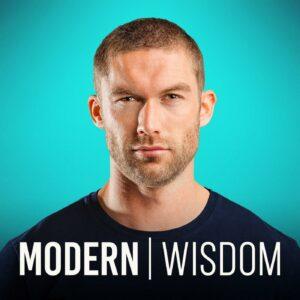
In this episode of the Huberman Lab podcast, Dr. Andrew Huberman discusses the science and treatment of Obsessive-Compulsive Disorder (OCD). He explores the distinct features of OCD, the various types of obsessions and compulsions, and the importance of understanding the neural circuitry underlying the disorder. Dr. Huberman also delves into effective treatments for OCD, including cognitive behavioral therapy, exposure therapy, and medication. Join him as he provides valuable insights and information to help those affected by OCD make informed choices about their treatment options.
OCD is distinct from obsessive-compulsive personality disorder, and it is important to understand the different types of obsessions and compulsions associated with OCD. The age of onset for OCD also plays a significant role in its treatment. Fortunately, there are now excellent treatments available for OCD, including behavioral therapies, drug therapies, and brain stimulation. The sequence in which these therapies are applied is crucial for their effectiveness.
Understanding the neural circuitry underlying OCD is essential for developing effective treatments. The corticostriatal thalamic loop, involving the thalamus and its surrounding structures, plays a critical role in OCD symptoms. Animal studies have demonstrated that activation of this loop can evoke OCD-like behavior. By targeting this circuitry, researchers can gain valuable insights into why certain treatments work and develop new interventions.
Cognitive behavioral therapy (CBT) and exposure therapy are highly effective treatments for OCD. CBT aims to disrupt the corticostriatal thalamic loop by gradually exposing patients to their fears and increasing their tolerance to anxiety. SSRIs, which regulate serotonin levels in the brain, can also be used to reduce OCD symptoms. For individuals who do not respond to CBT or SSRIs, other drug treatments that target different neurotransmitters and neuromodulators are explored.
Transcranial magnetic stimulation and ketamine therapy are non-invasive treatments being investigated for OCD. Supplements and nutraceuticals, such as inositol and glycine, show promise in reducing OCD symptoms. Research is ongoing to explore the potential of psilocybin and cannabis CBD in OCD treatment. Individual variation and responses are crucial factors in determining the right treatment and dosage for each individual.
OCD is a common and debilitating condition that significantly impacts individuals’ lives. Superstitious behaviors can sometimes border on or become compulsions in individuals with OCD. These behaviors can be challenged and normalized through appropriate interventions. Research on rats also indicates the presence of superstitious behaviors when performing certain actions, highlighting the complex nature of these behaviors.
This episode of the Huberman Lab podcast provides valuable insights into the science and treatment of Obsessive-Compulsive Disorder (OCD). By understanding the distinct features of OCD, the neural circuitry involved, and the various treatment approaches, individuals affected by OCD can make informed choices about their treatment options. OCD is a debilitating condition, but with the right interventions, individuals can find relief and improve their quality of life. It is important to seek evidence-based treatments and explore the range of options available to manage OCD symptoms effectively.